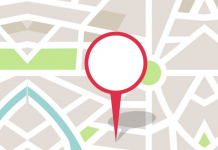A commercial mortgage is any loan secured on property which is not your residence. Buy to let mortgages are a special type of high volume commercial mortgage which is packaged for a volume market.
When are commercial mortgages used?
Commercial mortgages generally take over where business loans finish. Business loans up to Kes 250,000 are unsecured, but for larger amounts, lenders need security in order to reduce the risk to themselves.
A business mortgage usually lasts from three to 25 years and you can usually find a 70-75% mortgage. This is a measure of loan-to-value ratio to see how much you’re borrowing in relation to how much the property is worth.
If it’s an investment then the amount you can borrow will be determined by the rental income generated by the investment, but this will not exceed 65% of the purchase price. If you are buying a business which includes goodwill, stock etc then the amount available will be further reduced.
Key features of taking out a commercial mortgage
A business mortgage plan differs from a regular mortgage in the following ways:
- There are usually no fixed rates for commercial mortgages
- You’ll usually pay a higher interest rate on commercial mortgages compared to regular home mortgages as these are considered higher-risk to lenders
- Commercial mortgages tend to offer better interest rates than regular business loans as these require property as collateral
The benefits of taking out a commercial mortgage
Here are a few reasons why you might want to think about taking out a commercial mortgage:
- The interest on your commercial mortgage is tax-deductible
- If your property increases in value, your capital could also see an increase
- You’ll be able to rent out the property to generate extra income
How to apply for a commercial mortgage
Hiring a specialist broker could help ensure you’re paired with the most suitable lender and make the application process more manageable. A commercial mortgage application works similarly to taking out a regular mortgage for your home:
- You complete and submit the Asset and Liability form (this can usually be done online)
- You’ll then be asked to complete the commercial mortgage application form
- You’ll be required to provide information on your business (listed below)
- The property is valued
- All legal due diligence will be carried out by the lender’s solicitors
- If approved, you’ll receive a mortgage offer by the bank
It’s a good idea to collate the necessary documents ahead of time, so your application is processed more efficiently:
- Bank statements usually covering the last 3 years
- Trading figures usually covering the last 3 years
- Proof of identity and address
- Lease and/or tenancy agreements
- You may have to provide a business plan for financial projections – this could help the lender determine how likely you’re to be able to pay off the loan
Key points to note:
Since a commercial mortgage is quite complex by nature, it’s a good idea to carefully consider which mortgage to opt for and ensure you’re able to afford the monthly payments.
- You’ll usually still be able to apply for a commercial mortgage if you have a bad credit rating, but you’ll likely pay a high interest to make up for the risk the lenders take
- Mortgages are a type of secured loan where the property is used as collateral by the lender against the loan, so if you default you’ll likely lose ownership of your real estate
- Deposits for this kind of mortgage can be quite hefty, so it’s a good idea to ensure you’ll be able to pay both the deposit and the monthly repayments comfortably
- A broker can often help you find the highest loan to value ratio (LTV)
- If you haven’t been trading for long, lenders may see this as a sign of high-risk and request personal guarantees














